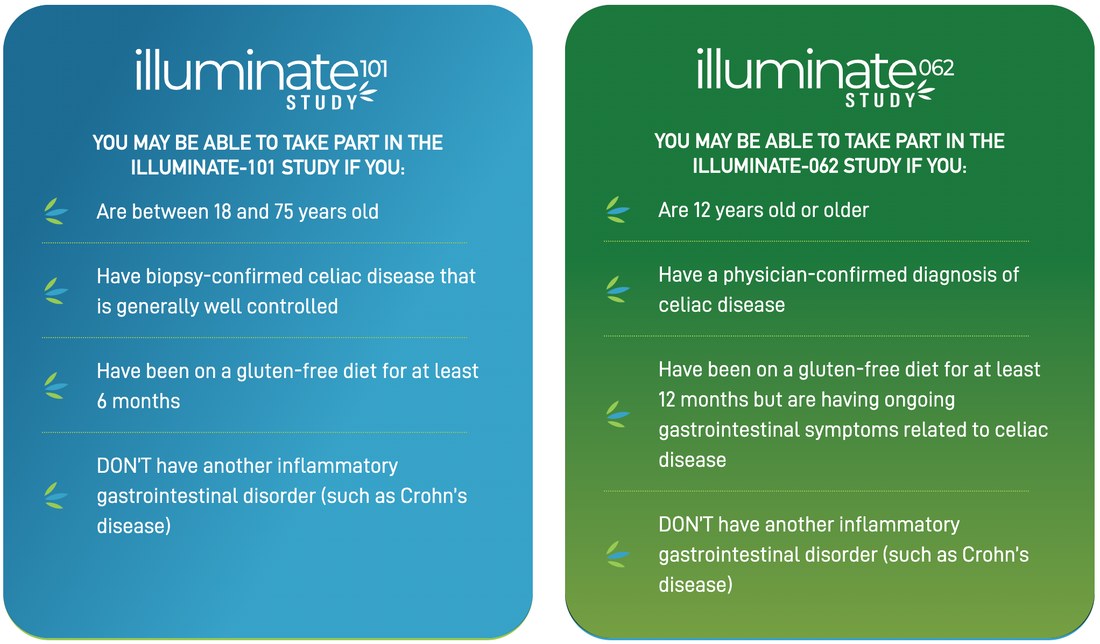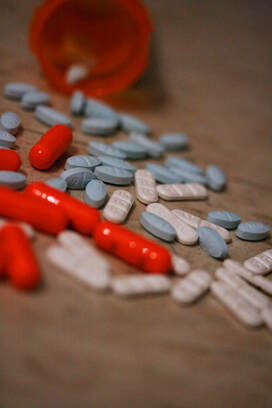|
Traditional family activities like trick-or-treating create fun moments and memories, but the effects of COVID-19 on this Halloween will bring about change for the spooky excitement.
You can still ensure a special night for your little ones and all the ghouls, goblins and ghosts in your neighborhood by following safety measures aimed at keeping everyone healthy on All Hallows’ Eve. Consider these tips for safe trick-or-treating from the experts at the National Safety Council and leading candy maker, Mars Wrigley. Before
After
If you’re staying home to hand out treats to the superheroes, ghosts, princesses and other little guests that arrive on your doorstep, consider these ideas to encourage safety and fun:
SOURCE: Mars Chocolate North America Article Credit: Delight Gluten Free Magazine
0 Comments
A recent study is available for individuals with celiac disease. Assist researchers in their quest for a treatment and receive compensation for your participation. Click below to learn more and see if you qualify.
Click here to see the National Celiac Association's [our parent organization] update on Covid-19 as it relates to those who have celiac disease. What to do if a person with celiac disease tests positive for COVID-19 The CDCTrusted Source currently recommend those with mild COVID-19 symptoms stay home to treat their symptoms. Ideally, a person with celiac disease and COVID-19 can stay at home and recover. If a person with celiac disease does require hospitalization and can eat, they must notify the hospital that they have celiac disease and need a gluten-free diet. The Americans with Disabilities Act requires hospitals to provide gluten-free foods. However, hospitals may have limited food options, given food shortages and transportation concerns due to COVID-19. However, many hospitals offer gluten-free foods as a standard part of their menu. These include:
Outlook Doctors and researchers are continually gathering data about COVID-19, including its incidence and recovery. As more information becomes available, researchers may be able to identify if there are links between the COVID-19 and celiac disease, especially when it comes to mortality and disease severity. Summary Researchers are collecting information about the incidence of COVID-19 in people with certain medical conditions, including celiac disease. Maintaining control and preventing active celiac disease, as well as taking preventive measures against COVID-19, can be a person’s best chance to maintain their overall health. Anyone with celiac disease that thinks that they may have developed COVID-19 should call their doctor or hospital before going in-person. Their medical facility can direct them as to which steps to take to receive a diagnosis and treatment. Gluten in Medications BillThe National Celiac Association helped develop the language of a Bill proposed to the Congressional floor on April 3, 2019. H.R. 2074, The Gluten in Medicine Disclosure Act of 2019 was introduced by Representatives Tim Ryan (D-OH) and Tom Cole (R-OK). If passed, this Bill will mandate that gluten be labeled on medications, helping all those in the gluten-free community. Please support this Bill by calling or writing to your local representatives. For more information, visit congress.gov. Article Archives
|
|


